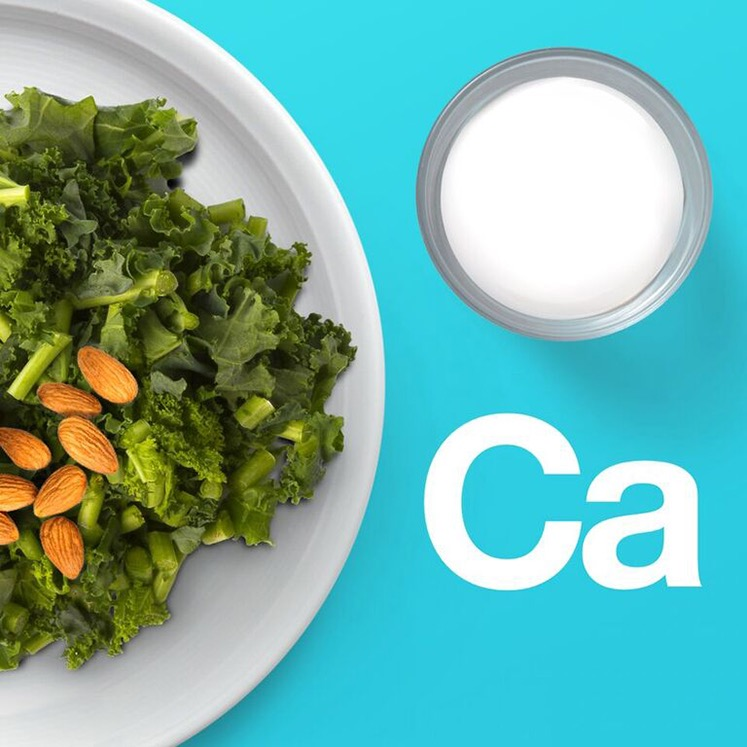Below are common questions related to the Calcium Calculator™ tool and its relevance to improving health. Research has shown that dietary calcium intake can be a reliable predictor of overall diet quality because of other key nutrients found in calcium-rich foods. Try the Calcium Calculator™ online tool or order the printed resource.
1. Why are some common calcium-containing foods, such as spinach and sesame seeds, not listed?
Many foods thought to be high in calcium don’t provide our bodies with adequate amounts in one portion.
Learn more about calcium-rich foods and calcium absorption here.
2. Is it OK to get calcium from a supplement?
It is recommended to choose food sources of calcium when possible. Learn more about taking calcium supplements here.
3. How much calcium does everyone need?
Refer to the recommended calcium intake chart to see how much calcium to aim for during every age and stage starting at age one.
4. What milk or milk alternative is OK for my 1-year old to drink?
In addition to continued breastfeeding, If you have a child under age two, whole cow’s milk and whole, pasteurized, fortified goat’s milk are the recommended beverage options for children of this age. Fortified soy drink can be used as an alternative to cow’s milk after age two. Learn more about beverage options for children 1 to 2 years old here. Learn more about milk and alternatives for kids here.
5. Why is almond drink in the “other” section in the app?
Almond drinks (and other similar calcium-fortified beverages such as coconut, oat, cashew and rice) do not contain enough protein to fit into the “Beans and other protein foods” section. Original and flavoured drinks are also high in added sugar. Learn more about milk alternatives here.
6. I am lactose intolerant. Can I still consume dairy?
If you’re lactose intolerant, you actually don’t need to avoid dairy. Learn more about managing lactose intolerance here.
7. Does high or low-fat milk have more calcium?
All milk is naturally high in calcium. Enjoy the type that fits your needs. Learn more about calories and fat in milk here.
8. I want personalized nutrition advice. Where can I go?
Find out more about national eating recommendations for various ages and stages here. For tailored healthy eating advice, Dietitians of Canada’s Find a Dietitian service can help you find someone in your area.
9. How can I find the Calcium Calculator™ web app?
Try the free interactive Calcium Calculator™ tool here.
